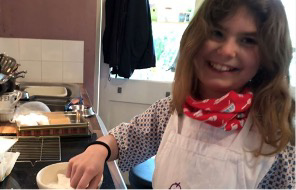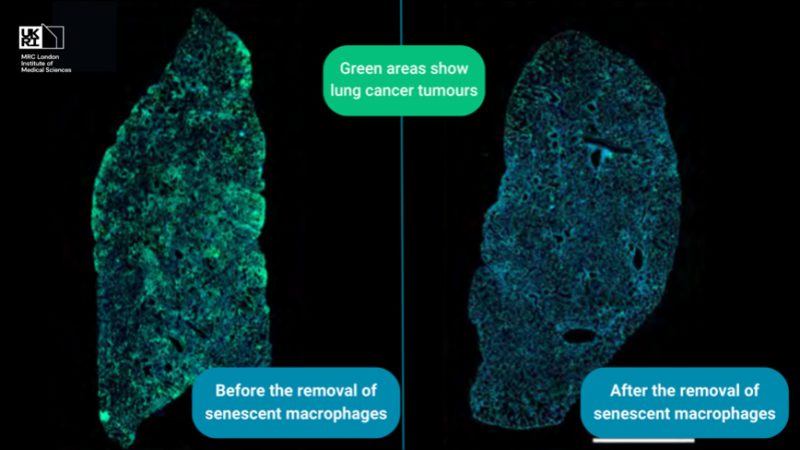9 year-old Lizzie Inspires £1.5m Search for New Brain Tumour Treatments
Home > News > 9 year-old Lizzie Inspires £1.5m Search for New Brain Tumour Treatments
Nine-year-old Lizzie Bramall from Colchester, who tragically passed away due to an aggressive brain tumour, has left behind a legacy that’s inspiring a groundbreaking £1.5 million research grant. The money will unite research at the MRC LMS, University College London, Imperial College London and The Institute of Cancer research to find new treatments.
By LMS Staff Member
September 14, 2023
Time to read: 3 minutes

Lizzie Bramall from Colchester was diagnosed with a diffuse midline glioma just shy of her tenth birthday. Her story touched countless hearts, leading to heightened awareness about brain tumours and the lack of treatments available.
Initially starting with mild symptoms such as double vision and unsteadiness an MRI revealed that Lizzie had a famously aggressive brain tumour known as a diffuse midline glioma.
Her family were left distraught at the devastating news that there is no treatment for this type of tumour.
Lizzie’s mum Sally said: “It was a horrifying diagnosis. Diffuse midline gliomas are difficult to treat because of the way they spread in the brain, and with very limited treatment options, our world came crashing down.”
Sadly, such high-grade gliomas are among the most challenging paediatric brain tumours to treat. Only 2-15% of afflicted children reach the five-year survival mark post-diagnosis.
In a step toward changing this heartbreaking statistic, The Brain Tumour Charity has allocated over £1 million to aid top UK researchers. Their mission? To understand how senescent cells — cells that no longer divide — can influence tumour growth and make treatment more challenging.
The fund will also allow researchers to test how current drugs that target senescent cells can be adapted specifically to treat this group of childhood brain tumours.
Professor Jesús Gil, leader of the MRC LMS Senescence Research Group explained “Conventional cancer treatments home in on rapidly dividing cells. However, non-growing cells called senescent cells, produce a multitude of molecules that aid the cancer’s growth and its ability to elude the immune system.”
Research on senescence has already showed promising results in treating difficult to drug cancers. Research released earlier this year from the MRC LMS Senescence group, already showed that removing senescent cells in lung tumours significantly reduced their size by reviving the body’s anti-tumour response.

Previous work by the MRC LMS Senescence Research Group and collaborators showed that killing senescent cells in treatment resistant lung cancer dramatically reduced the size of tumours. The work shines hope on targeting senescent cells to combat aggressive brain tumours.
In addition to other positions, this grant will fund a PhD studentship jointly supervised by the Martinez-Barbera lab UCL Institute of Child Health and the MRC LMS Senescence Research Group.
“While existing senolytics have been shown effective as anti-cancer therapies, our collaborative work with UCL have failed in these tumours so far. The student will conduct screenings to find noel senotherapeutics effective against childhood gliomas” explained Professor Jesús Gil.
While Lizzie may no longer be with us, her memory lives on. Over £500,000 has been raised in her name for The Brain Tumour Charity’s research endeavours through The Lizzie Fund.
You can donate to the Lizze fund on The Brain Tumour Charity or donate by buying from Lizzie’s Fund On-line Shop on JustGiving.
“Lizzie was part of a clinical trial, so from early on we understood the importance of research and the funding it needs” said Sally, “We continue to raise money for The Brain Tumour Charity in Lizzie’s memory, and we are really passionate about the research The Charity funds.”





